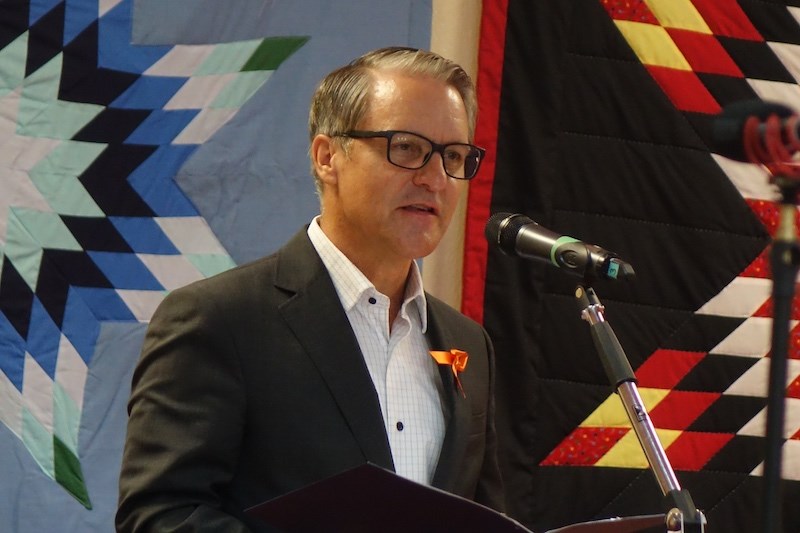The provincial government is providing $145,000 to the Island Lakes Tribal Council for community-led restorative justice initiatives.
Justice Minister Cameron Friesen announced the funding Nov. 24, in the midst of Restorative Justice Week.
“We remain committed to working with rights holders organizations and Indigenous leaders on the development of restorative justice hubs and greater involvement in the justice system,” he said.
Manitoba’s Criminal Justice System Modernization Strategy, released in 2018, identified restorative justice options as a way to reduce incarceration, particularly among Indigenous people, lower the cost of dealing with some criminal matters, decrease the rate at which people reoffend and involve communities in the legal process.
For seven years in a row prior to 2018, Manitoba had the highest adult incarceration rate of any Canadian province and Indigenous people are over-represented among prison inmates, making up 74 per cent of those in provincial correctional facilities despite accounting for only 18 per cent of the province’s total population. People who receive community-based sentences for the crimes they are convicted of are less likely to be convicted of another crime requiring a prison time or probation within two years of completing their sentences than those who are sent to prison.
When someone is referred to a restorative justice program, they work with victims of the crime and community representatives to find a way to repair the harm caused by the crime. Offenders are frequently required to get treatment or counselling for underlying issues that led to the crime.
Manitoba and the federal government fund several restorative justice programs in Northern Manitoba, including ones in Cross Lake, Norway House and St. Theresa Point, as well as programs run by Manitoba Keewatinowi Okimakanak and the Manitoba Metis Federation, which provide services in about 30 different communities.
Thompson is one of four restorative justice hubs in Manitoba.
In addition to the funding for Island Lake communities, Manitoba Justice also used money it received from the RCMP’s Family violence Initiative Fund to host a conference in Winnipeg Nov. 23-24 focusing on restorative justice and intimate partner violence.
‘“We are proud to partner with Manitoba Justice to bring awareness of the goals of restorative justice, which include reducing repeat offenders, strengthening communities, and increasing public confidence in the criminal justice system,” said Manitoba RCMP commanding officer Asst. Comm. Jane MacLatchy.




